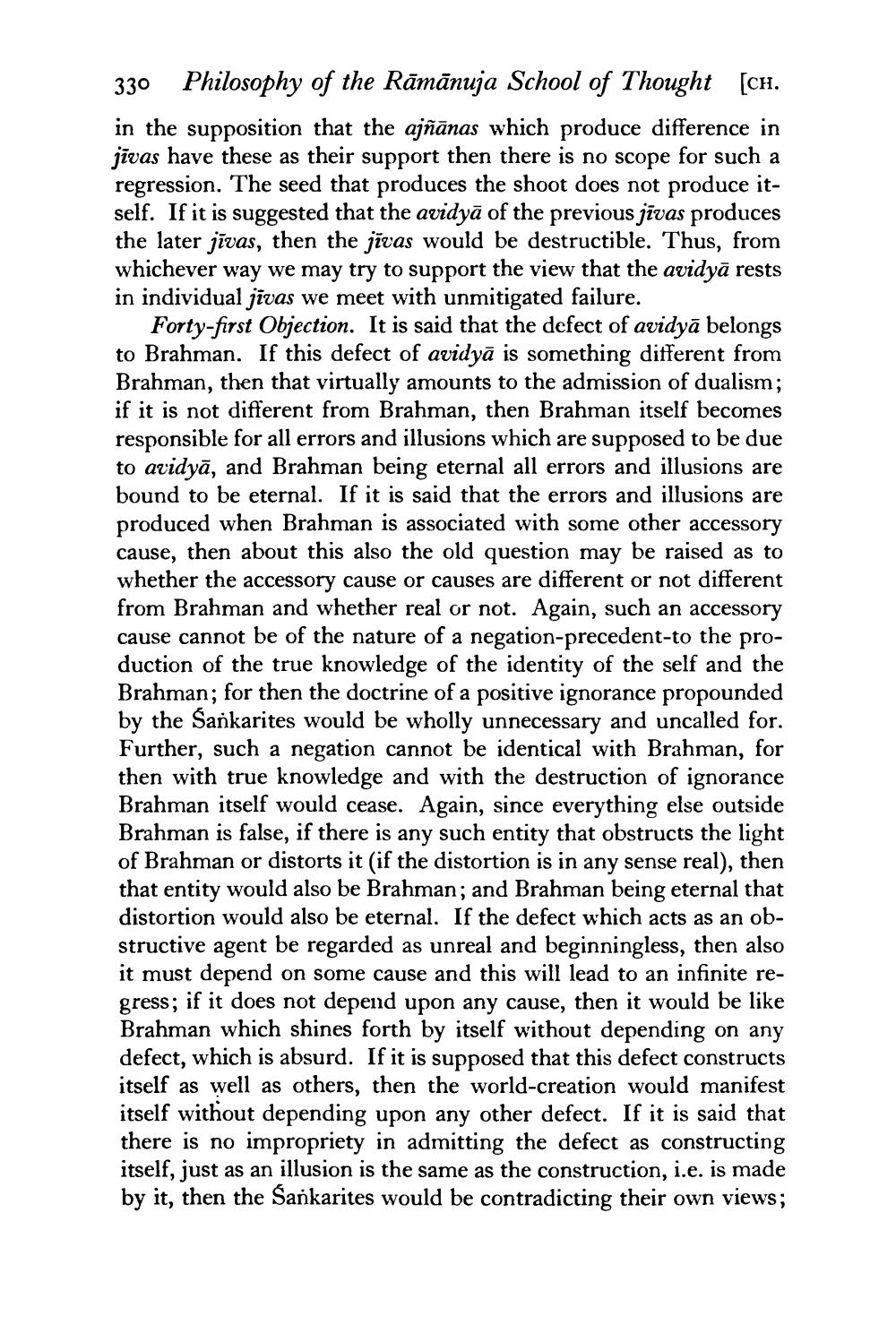________________
330 Philosophy of the Rāmānuja School of Thought [ch. in the supposition that the ajñānas which produce difference in jīvas have these as their support then there is no scope for such a regression. The seed that produces the shoot does not produce itself. If it is suggested that the avidyā of the previous jīvas produces the later jīvas, then the jīvas would be destructible. Thus, from whichever way we may try to support the view that the avidyā rests in individual jīvas we meet with unmitigated failure.
Forty-first Objection. It is said that the defect of avidyā belongs to Brahman. If this defect of avidyā is something different from Brahman, then that virtually amounts to the admission of dualism; if it is not different from Brahman, then Brahman itself becomes responsible for all errors and illusions which are supposed to be due to avidyā, and Brahman being eternal all errors and illusions are bound to be eternal. If it is said that the errors and illusions are produced when Brahman is associated with some other accessory cause, then about this also the old question may be raised as to whether the accessory cause or causes are different or not different from Brahman and whether real or not. Again, such an accessory cause cannot be of the nature of a negation-precedent-to the production of the true knowledge of the identity of the self and the Brahman; for then the doctrine of a positive ignorance propounded by the Sankarites would be wholly unnecessary and uncalled for. Further, such a negation cannot be identical with Brahman, for then with true knowledge and with the destruction of ignorance Brahman itself would cease. Again, since everything else outside Brahman is false, if there is any such entity that obstructs the light of Brahman or distorts it (if the distortion is in any sense real), then that entity would also be Brahman; and Brahman being eternal that distortion would also be eternal. If the defect which acts as an obstructive agent be regarded as unreal and beginningless, then also it must depend on some cause and this will lead to an infinite regress; if it does not depend upon any cause, then it would be like Brahman which shines forth by itself without depending on any defect, which is absurd. If it is supposed that this defect constructs itself as well as others, then the world-creation would manifest itself without depending upon any other defect. If it is said that there is no impropriety in admitting the defect as constructing itself, just as an illusion is the same as the construction, i.e. is made by it, then the Sankarites would be contradicting their own views;




